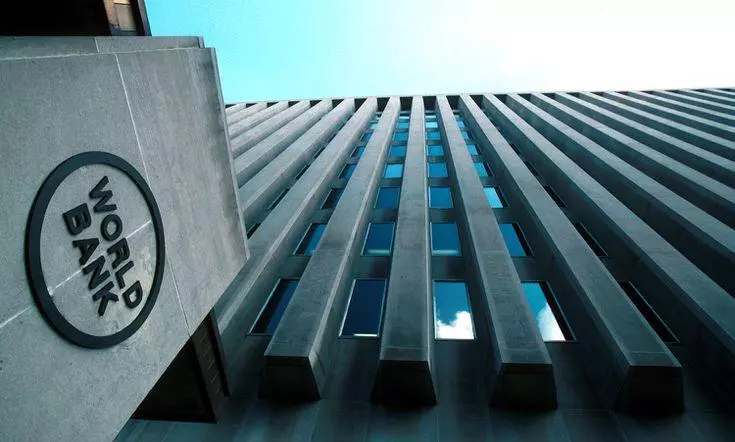
India's GDP is Expected to Contract 9.6 % This Year, World Bank Report
text_fieldsThe World Bank forecasts a decrease in the GDP of South Asia by 7.7 per cent this year due to the near standstill caused by Covid-19 pandemic.
In extension, India's GDP is expected to contract 9.6 per cent in the fiscal year that started in March. South Asia Economic Focus published by World Bank highlights that among all the sections of society informal sector in South Asia did hit hard and struggling to manage the large drop in earnings and unprecedented decline in short term supply and demand. Even though the countries are trying to stabilise their economies through fiscal and monetary policies, to tackle the greatest harm experienced by informal sector structural problems of the sector need to be addressed.
According to the report, since March this year, disruptions in economic activities are evidently shown thereby night time light intensity of South Asian's districts has declined in more than three-quarters of its earlier measure. The spread of Covid -19 in large numbers and subsequent containment measures are the major reasons behind the disruption in economic activity and most of the countries reported the worst contraction in their GDP growth.
The World Bank report denominates the lifetime impact caused by the closure of schools and the all-over inability to inculcate the students to an alternative mode of learning in this region. Due to the pandemic, at least 391 million students kept out of primary and secondary education and may cause up to 5.5. a million students to drop out of the education system.
The sudden and steep disruptive impacts got worsened due to the largely unregulated and unprotected informal sector in the South Asian region. World Bank observes that "For now, macro-financial stability has been preserved. However, the situation is fragile amid weak buffers and exhausted policy tools in some countries".
Investigation shows that impact over livelihood and consumption will be higher than before, with an expected decline in private consumption by 10.1 per cent. The report breakdown that the pandemic is still not under control and the possibility of a rapid acceleration in the number of cases cannot be nullified. Large decline in the external finance, fall in the output, volatile external demand and fragile banking sectors with high levels of non-performing loans, all are having a two-way causal relation with increased risky condition of deprived economic condition of South Asian countries.























